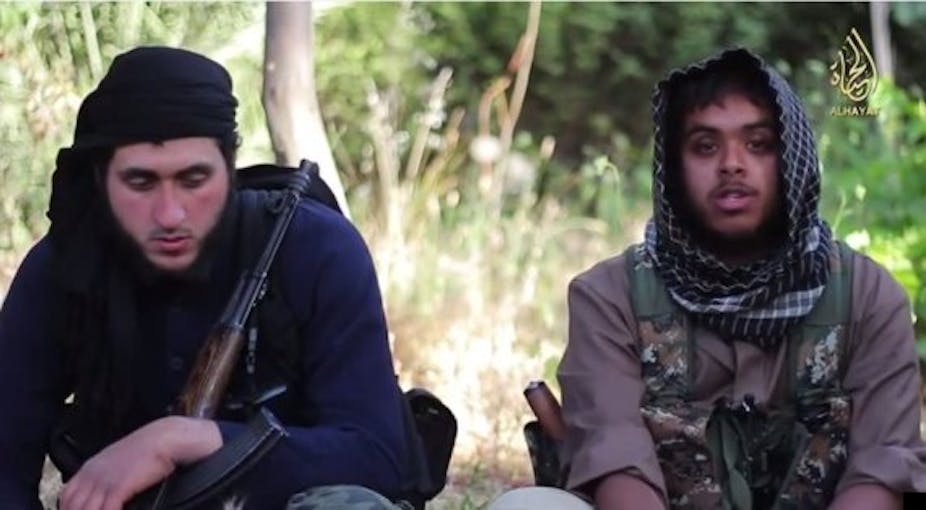The Sunni rebels in Iraq have made further gains, taking control of important border crossings with Syria and Jordan, the Rutba truck-stop on the main road from Baghdad to the Jordan border and two towns on the Euphrates. They may even have taken the key hydroelectric power station at the Haditha Dam and have certainly got control of the strategic airport at Tal Afar in the north. Meanwhile the fight for Iraq’s largest oil refinery at Baiji continues.
There is some concern that controlling the border crossing with Jordan may be a prelude to greater activity within Jordan, but for now that seems unlikely. There is undoubtedly much resentment in the kingdom at the failure of the monarchy to reform sufficiently, and the country is also having serious problems trying to cope with huge numbers of refugees from Syria. Analysts have therefore cited Jordan as a candidate for major public protest, but this has not so far been reflected in a rise in radical Sunni jihadism.
Shia groups mobilising
In Iraq, despite Islamic State in Iraq and the Levant (known as ISIS) gains, there is a sense that the sudden re-emergence of the Shia militias, especially those linked to Muqtada al-Sadr, mean that encroachment beyond the predominantly Sunni regions to the west and north-west of Baghdad will be very limited indeed.

The progress of ISIS over the past two weeks certainly appears remarkable, but only until one looks deeper. This is because while ISIS has certainly transformed the image of security across the region, it is actually heavily involved in a wider movement against the Iraqi government which includes many other paramilitary groups that are deeply antagonistic to al-Maliki and what they see as the Shia dominance of the country.
Ba'ath era Sunnis regroup
Thus a pattern is now emerging in Iraq of dedicated and highly experienced ISIS paramilitaries taking over towns but moving on while leaving behind small cadres of their own but letting more secular Sunni groups get on with the actually job of making the towns function.
Many of these groups go right back to the remnants of the Ba’ath Party of the Saddam Hussein era, with one of the best organised being the Naqshbandia Army also known by the acronym for its Arabic name, JRTN. This has been around since the execution of Saddam Hussein a decade ago and is reportedly still headed by one of his most trusted generals, Izzar Ibrahim al-Douri. JRTN seeks the overthrow of the Malaki government but is anything but Islamist, so the current involvement with ISIS is no more than a marriage of convenience for both groups.
There are already strains between them, with reliable reports of actual fighting near Mosul. For ISIS, therefore, working with JRTN, other Ba’ath-era groups and local clans is no more than a temporary expedient in the longer-term aim of establishing a “proper” Islamist Caliphate across northern Syria and Iraq, this in turn being a prelude to the much longer-term aim of a far larger entity stretching across the Middle East.
Beware of Western intervention
What does this mean for what ISIS plans for the weeks ahead? In the short-term the most likely aim will be to consolidate its hold over the towns and cities across north-western Iraq that have been over-run, while seeking to limit the influence of groups such as JRTN and some of the clan militias. This will not be easy, given the small numbers of ISIS fighters actively involved within Iraq. While ISIS has a measure of support, this is because it is seen as the vanguard in the fight against the al-Maliki government, not through any embedded support for the Islamist fundamentalism that it espouses.
As a consequence, ISIS will probably refrain from being too autocratic in its demands, at least for now, and there is already evidence that in cities such as Mosul there have been few indications of the imposition of restrictions on dress, music, sport and the like.
In the longer term, ISIS needs to build on its success and to do this it needs more support, especially in the form of recruits from other countries. The release of a recruitment video is likely to be the first of many, even ISIS no doubt really prefers people with combat experience from across the Middle East rather than naive if idealistic young men from the West.
One development that would greatly help it would be direct western military involvement, especially if it involves Israel as well. That would enable it to develop the very powerful propaganda line of a “Crusader-Zionist conspiracy” to control the Islamic world, a vision that proved an excellent recruiting tool for the al-Qaida propagandists in the early months of the Iraq War. This, alone, is a very good reason for the US and others to avoid any such intervention no matter what the provocation.

